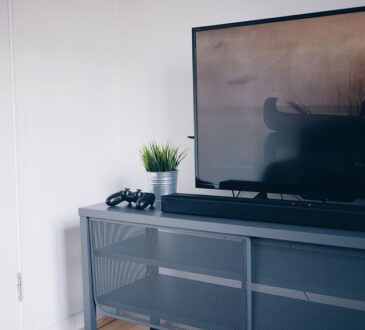

Computer for College
According to one study, 88% of college students use laptops for college. If you’re thinking about getting a computer for college, you might be wondering what factors to consider.
There are actually a few different things to keep in mind when you want to buy a new laptop, but what are they?
Keep reading, and we’ll fill you in on all the specifications you need to consider when you buy a laptop.
Form
First, you’ll need to figure out what type of device you want. Do you want a 2-in-1 device? These act as a tablet and a computer, which can make it really easy to take notes in class.
They offer more advantages over a traditional laptop. There are two designs: one that acts as a computer and one that has a detachable or rotating keyboard where you can fold it behind the screen.
This versatility makes it easier to take notes, read textbooks, and then write papers. If you’re going to be traveling and completing a lot of assignments as you go, you might find that this makes it easier for your workflow.
These devices normally have lower-end hardware though since they’re smaller and more flexible. However, if the form is important to you, you might want to consider that.
Operating System
You’ll also have to figure out which operating system you want to work with on your computer.
Windows 10 is the most popular operating system, and it’ll be installed on pretty much any PC. It’s very easy to use, and it’s compatible with a lot of different apps and features.
However, there are also operating systems like Linux and Mac OS. The Mac OS is only available on Apple products, but people who are going to be doing a lot of creative work seem to like that system better.
Linux might be a more affordable operating system to buy, and sometimes it’ll come pre-installed on certain computers. This could save you money, but if you want Windows, you’ll have to pay more to install it.
Screen Size
How big of a laptop screen do you need for your homework? If you’re going to just be taking notes in class, it might not need to be that big. But if you’re editing videos for your final project, it might make sense to get a bigger screen.
Normally, the size of the screen will also correlate with the price and the weight of the laptop. Screen sizes start at around 11 inches, and then they’ll go up to about 17 inches.
If you want a laptop that has 11 to 13 inches of screen, you’ll normally be buying a smaller and more lightweight laptop.
These are great if you’re on a really tight college budget and need some portability. You’ll normally only do basic functions on these laptops, like browsing the web, emailing, or typing in a word processor.
There are also many laptops that have 15-inch screens. These are always good options because it’s a nice middle ground. They’ll have a great price and performance, and a decent-sized screen.
These laptops will normally weigh around four pounds, and they’re targeted at the mainstream consumer. You may also find more features with this laptop since it’s bigger.
A 17-inch model is for college students who want peak performance. These models normally weigh the most, so it might not be ideal if you’re going to be hauling it from class and back.
These laptops are best for video editors, content creators, or gamers. The large screen might even mean that you don’t need to spend money on an external monitor, which is good because these laptops are normally the most expensive.
Budget
When you choose a laptop, the budget is normally the first thing in your mind. As a college student, it can be hard to find the money for a good laptop, which is why you’ll need to consider everything carefully.
Some laptops, like the ones you can find at www.lenovo.com, range from $300 to $900, but there are some that can even cost thousands of dollars.
Some manufacturers are more expensive than others, like Apple. If you want to buy a Macbook, you’ll likely have to pay around $1,000.
If you’re on a really strict budget, you may even be able to buy a refurbished laptop from a second-hand seller like eBay or Amazon for a few hundred dollars.
Ports/Connectivity
You’ll also want to consider how many ports and connection comes with your laptop. In general, the smaller the laptop is, the fewer ports you’ll have.
But you’ll want to consider how many USB ports you have. This will let you plug in external hard drives, mice, keyboards, and cameras.
You may also want to consider if you need an Ethernet port. This will allow you to plug your laptop into a wired network. Most computers don’t need this because they can wirelessly connect to the Internet.
However, if you’re going to be gaming, it might make your games run faster.
Storage
You’ll also have to consider how you want to store all the information on your hard drive. You could either get an SSD or an HDD to store the information.
An SSD is normally faster and can hold more. However, this means that it’s normally expensive as well.
If you have the budget for it, that’s the best option. Most hard drives offer at least 128 GB of storage, but many college students want to have at least 250GB.
However, if you’re planning to keep everything stored in a cloud system like Google Drive or something else, then you may be able to have less storage on the actual computer. You can also choose to get an external hard drive for more storage space.
RAM and Processor
Most laptops on the market will run on an AMD or Intel processor. You’ll need to choose the right one, and it can be difficult.
If you’re going to use your laptop just for basic homework assignments, you can probably use an Intel Core i3 or an AMD A-series A6.
If you’re going to be running a lot of heavy programs or software that relies on graphics, you may want to get an Intel i5 or i7 or an AMD A10 processor.
The RAM of the computer is also important to consider. Most of them have about 4GB of RAM, which can be great for doing daily tasks. But if you want to run heavier programs, you might want to get at least 8GB of RAM.
This will make multitasking on the laptop a lot easier.
Battery Life
If you’re going to be taking your computer to class, you’ll want to consider the battery life as well. Most batteries can last somewhere between 10 to 14 hours.
However, smaller computers have longer battery lives because they don’t need as much power and can run efficiently. If you need a higher-performing laptop, you’ll use more power and be less efficient.
On the low end, the battery life might last eight to ten hours. On the high end, you’ll be lucky to get between twelve to seventeen hours of battery life.
Apps
As a college student, there might be different types of apps that you need to use to take notes or do homework. So you’ll need to make sure you buy a laptop that is compatible with downloading third-party apps.
You might want to get a laptop that has more capabilities. For example, a Chromebook doesn’t allow you to download a lot of third-party apps, so this may not be the best option. Chromebook won’t even let you install Microsoft Word.
However, if you’re going to be using a completely remote learning program, you could get away with using a cheaper computer like a Chromebook.
Graphics Card
There are normally two types of graphics cards that are in laptops: discrete or integrated.
If you get an integrated graphic card, it’s normally slower, and the discrete ones are more towards performance. If you’re going to use that laptop for playing small video games, watching movies, or browsing the internet, you’ll be okay.
These cards normally are AMD or NVIDIA. AMD cards are called Radeon and NVIDIA cards are called GeForce.
With a discrete graphic card, you’ll get GPUs that have dedicated memory to handle more intense graphics. If you’re studying something with computer graphics, it might help to have that card on your laptop.
NVIDIA also makes discrete graphics card, but these are also more expensive. Depending on the laptop, you may be able to upgrade your graphics card as well.
Learn More About How to Choose the Best Computer for College
These are only a few things to consider when choosing the best computer for college, but there are many other factors to consider.
We know that keeping up with the latest technology can be difficult at times, especially since it’s always changing. That’s why we’re here to help.
For more technology-related information, explore our website! We have more articles just like this one.




